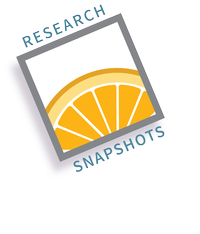Advanced testing and commercialization of novel defensin peptides and therapies for HLB control

Research by Kranthi Mandadi, Texas A&M AgriLife
Article written by: Kranthi Mandadi, Sonia Irigoyen, Texas A&M AgriLife
Article edited by: Lukasz Stelinski, Peggy G. Lemaux,
What is the technique?
Citrus greening or Huanglongbing (HLB), associated with Candidatus Liberibacter asiaticus (CLas) in the U.S., is the most devastating citrus disease today and has invaded most production areas in the U.S. Developing effective and commercially viable HLB control strategies is critical for the survival of the U.S. citrus industry. In this coordinated agricultural project, we are pursuing research and evaluation of promising HLB therapies and extending outcomes to stakeholders (Fig. 1) by leveraging public-private partnerships between State agencies, Universities, USDA-ARS, and the citrus industry.
How are these procedures involved in the research described and what was discovered?
To speed the discovery of HLB therapies, we developed an innovative CLas-citrus hairy root system that enables high throughput efficacy screening of antimicrobial peptides, small molecules, defense-related genes, and gene editing (CRISPR) targets for HLB management1. We are using this system to pre-screen two types of therapies: i) antimicrobial peptides (plant defensins) and ii) chemical compounds. Results so far have identified multiple peptides and chemical compounds with promising anti-CLas activity, which have been advanced to multi-location field trials using the Citrus tristeza virus vector and trunk injection-based delivery systems, respectively. Further economic feasibility studies will be conducted on the treatments that were shown to improve yield to determine the extent of benefit to citrus growers. A multi-state extension and outreach team uses various multi-media tools to disseminate project information to the stakeholders. Lastly, we are advancing promising therapies into a commercialization pipeline to seek regulatory approvals through industry partnerships.
Who is working on this project?
Kranthi Mandadi, Sonia Irigoyen, Manikandan Ramasamy, Freddy Ibanez, Juan Enciso, Samuel Zapata, Olufemi Alabi (Texas A&M AgriLife, Texas A&M University); Veronica Ancona (Texas A&M University-Kingsville); Ute Albrecht, Choaa El-Mohtar, Ariel Singerman (University of Florida); Jinha Jung (Purdue), Hung Doan, Sonia Rios, Ben Faber, Greg Douhan (University of California); Ray Yokomi (USDA-ARS), and Mike Irey (Southern Gardens Citrus, U.S. Sugar).
What are the challenges they are facing?
The major hurdle, in our view, is the regulatory process and commercialization of effective therapies. The extensive timelines and costs (>$130 million) associated with deregulating and registering new HLB antimicrobials or delivery systems require strong partnerships and continued support from the private sector. This is particularly challenging today, given the declining citrus industry in Florida.
Funding source: USDA NIFA ECDRE (2021-70029-36056), Texas A&M AgriLife Research, Southern Gardens Citrus, U.S. Sugar

